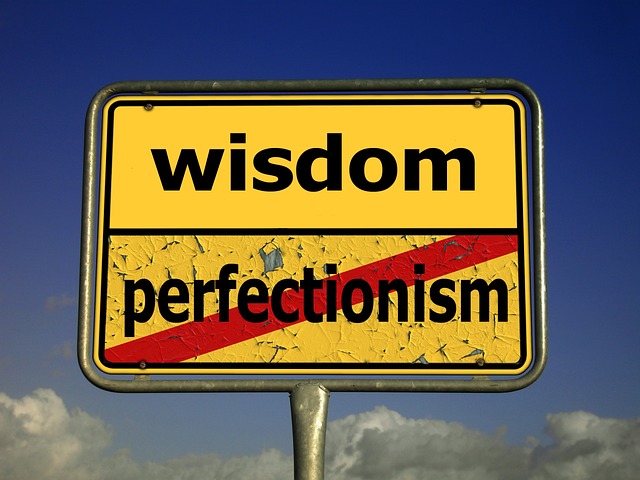Striving for perfection is a trap. Perfectionism is not an achievable standard—it’s an illusion that keeps us chasing a finish line that doesn’t exist. Have you ever found yourself looking at others and wishing you were as talented, confident, or accomplished as them? Maybe they seem funnier, more outgoing, or simply better at life. If that sounds familiar, you’re not alone.
The question is: How many years have you spent waiting to be perfect? And what has that waiting cost you?
The Need for Perfection: Where It All Begins
For many of us, the quest for perfection starts in childhood. We observe the families, schools, and environments around us, unconsciously absorbing what we believe to be “perfect.” I grew up thinking other families had it all together while mine fell short. That belief shaped the way I saw myself and the world for decades.
In hindsight, those comparisons weren’t based on reality—they were stories I told myself. Yet, I spent years chasing an ideal, thinking that if I could just become “enough,” I would finally feel fulfilled. Instead, it led to stress, exhaustion, and frustration at never measuring up.
The Paralysis of Perfectionism: Feeling Stuck Between Fear and Action
At one point, I was frozen, unable to move forward or back. The very notion that you even need to achieve Perfection paralyzes you—the fear of not doing things perfectly becomes an invisible wall, blocking progress. It often looks like procrastination or avoidance, but beneath it lies a fear of failure, judgment, and rejection.
This paralysis traps us in self-loathing, torn between the desire to move forward and the fear of doing it wrong. Have you ever been in that place?
Breaking Free: The Journey Toward Self-Acceptance

The turning point came when I realized—really realized—that I am enough just as I am. This truth required breaking down old beliefs and slowly building new, more empowering ones. Letting go of perfectionism was like shedding a weight I didn’t know I was carrying.
Once I stopped chasing others’ approval, I could start living authentically. I no longer had to fit in or meet impossible expectations. Most importantly, I learned to silence my inner critic—the voice that insists you’re never good enough, talented enough, or worthy enough.
The Mental Toll on Perfectionism
For individuals consumed by perfectionism, the emotional burden can feel overwhelming, leading to a toxic cycle of self-loathing and chronic dissatisfaction. Even when achievements are reached, perfectionists often feel empty, dismissing their efforts as “insufficient.” This constant self-criticism takes a severe toll on mental health, increasing the risk of depression, anxiety, and burnout.
Research shows that perfectionism is strongly correlated with mental health disorders such as anxiety and depression. Studies have also found that those with perfectionistic tendencies are more prone to suicidal ideation and are at heightened risk for eating disorders, especially when their self-worth becomes tied to performance and achievements.
The relentless pursuit of perfection also amplifies stress levels. Perfectionists are often hyper-focused on avoiding mistakes, which makes them highly sensitive to failures—no matter how minor—and fuels rumination. This mental pattern of dwelling on perceived shortcomings erodes confidence and contributes to emotional exhaustion over time.
Addressing these issues requires a shift from perfectionism to self-compassion and progress-based thinking. It’s essential to recognise that good is often good enough and that flaws and failures are an inevitable—and valuable—part of life. By moving away from the rigid pursuit of perfection, individuals can experience improved well-being and healthier relationships.
This perspective aligns with findings from the American Psychological Association and Medical News Today, underscoring that perfectionism is not just a harmless trait—it is a serious mental health concern that demands attention.
Leadership Perfection: How It Impacts Teams
When perfectionists become leaders, their pursuit of flawlessness doesn’t just affect them—it impacts those they lead. Perfectionist leaders often feel the need to control every detail and insist that tasks be done their way. While this might seem like a commitment to excellence, it often stifles creativity and growth in the people they manage.
The Downside of Perfectionism in Leadership
- Micromanagement: Perfectionist leaders struggle to delegate, believing that others won’t meet their high standards. This creates a bottleneck, slowing progress and frustrating employees.
- Fear of Failure: Employees working under a perfectionist leader often become risk-averse, fearing criticism if they make mistakes. Innovation suffers because people are afraid to try new ideas.
- Burnout Culture: A leader obsessed with perfection can create an environment where burnout thrives. Team members feel pressured to work longer hours, afraid of falling short of unrealistic expectations.
- Reduced Engagement: Creativity and engagement decline when employees feel stifled. When leaders demand perfection, it sends the message that only outcomes matter, not learning or growth.
How Perfectionist Leaders Can Shift Their Mindset
The good news is that leaders can change. It starts with self-awareness—recognizing perfectionist tendencies and understanding how they impact the team. Here are some mindset shifts perfectionist leaders can adopt:
- Progress Over Perfection: Focus on incremental progress rather than flawless execution.
- Celebrate Mistakes: Create a culture where mistakes are seen as learning opportunities, not failures.
- Delegate and Trust: Empower your team by delegating tasks and trusting their judgment.
- Prioritize Well-Being: Set boundaries to prevent burnout and encourage a healthy work-life balance.
When leaders embrace imperfection, they foster a culture of trust, creativity, and resilience. Teams perform better when they feel safe to experiment, fail, and grow.
The Squatters in Your Head: Fear and the Inner Critic

We all carry mental squatters—those nagging voices that tell us we’re not good enough or that others are judging us. Initially, these voices may have served a purpose, helping us navigate challenges or avoid risks. But over time, they turn toxic, holding us back from pursuing our dreams.
Do you recognise your own squatters? They might say things like:
- “You’ll never be good enough.”
- “What will people think?”
- “Why bother trying if you might fail?”
These squatters thrive on fear—fear of failure, rejection, and judgment. As long as you feed them, they stay, slowly draining your energy and self-confidence.
How Perfectionism and Fear Are Everywhere Today
Today’s world is full of fear—fear of illness, financial collapse, job loss, relationship breakdowns. These fears creep into our thoughts, impacting the quality of our relationships and decisions. When fear drives us, we stop living fully, constantly worried about what might go wrong.
Perfectionism makes it worse by demanding that we always look flawless and never falter, even in uncertainty. This constant pressure is exhausting and robs us of joy and spontaneity.
How to Start Silencing the Inner Critic
If you’re ready to let go of perfectionism, here are a few steps to help you silence the inner critic:
- Recognize the Squatters: Notice the negative thoughts running through your mind. Are they really yours, or are they echoes of others’ expectations?
- Challenge the Thoughts: Question the critical voices. Are they based on truth, or are they just fear speaking?
- Practice Self-Compassion: Treat yourself with the kindness you would offer a friend. Mistakes are part of learning and growth.
- Shift Focus to Progress: Instead of aiming for perfection, celebrate small wins and the steps you take. Progress matters more than perfection.
Creating a New Path
Years ago, I began my journey toward self-acceptance. It wasn’t easy, but it changed everything. Breaking free from perfectionism allowed me to discover my passion for helping others. Today, I guide others on similar journeys, helping them release fear, rewrite old stories, and embrace their authentic selves.
If you’ve had enough of feeding your squatters, know that you’re not alone. You can choose a new path—one where you are already enough, without the need to be perfect.
Join the Conversation
Are you ready to let go of perfectionism and embrace self-acceptance? Join the conversation in my Facebook group, where we explore personal growth, mindset shifts, and strategies to overcome fear and anxiety. Let’s take this journey together.
